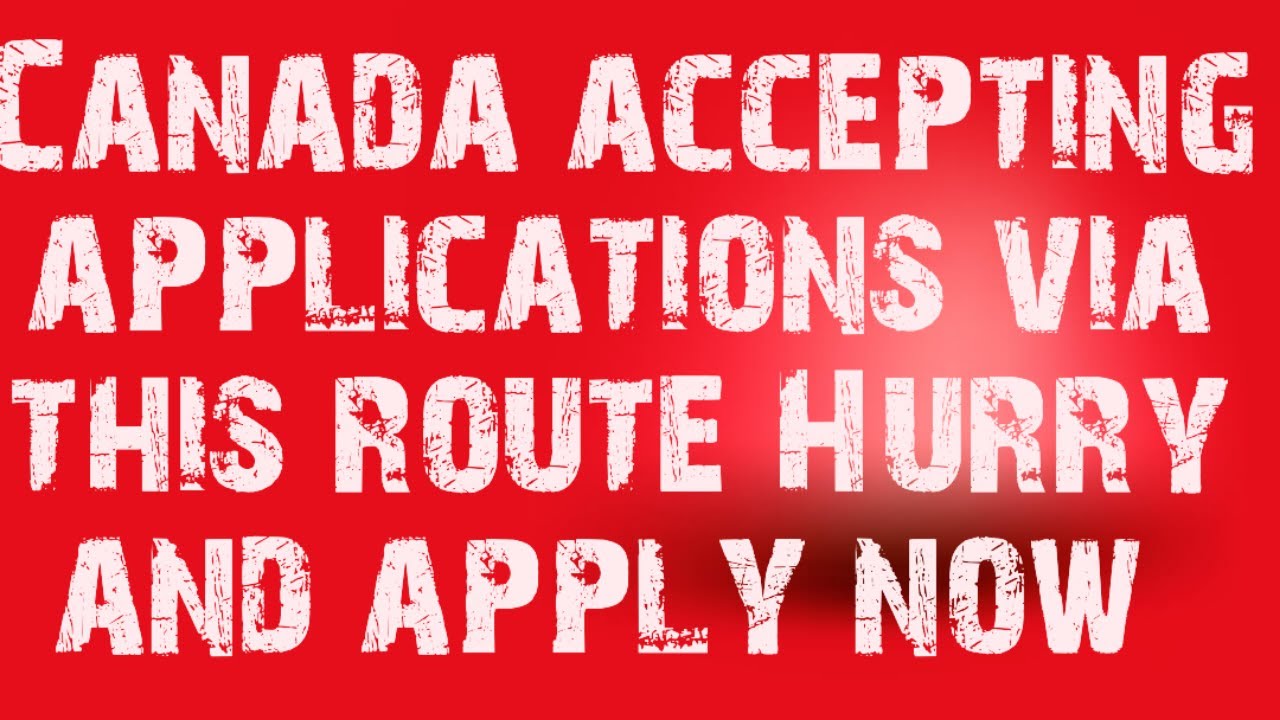Is it legal to trade forex in Canada as an international student using Questrade? That’s the burning question, isn’t it? Imagine: you, a savvy international student, armed with your laptop and a thirst for financial adventure, eyeing the volatile world of forex. But before you dive headfirst into the exciting (and potentially terrifying) currents of currency trading, let’s navigate the legal shoals and tax reefs that might lie ahead.
This isn’t your average textbook; we’re talking about real-world implications, from Questrade’s account opening process to the subtle dance with Canadian tax laws. Buckle up, it’s going to be a wild ride!
This guide will explore the legal landscape of forex trading in Canada for international students using Questrade, covering everything from regulatory bodies and tax implications to the potential impact on your visa status. We’ll break down the complexities of forex trading, offering a clear and concise understanding of the rules and risks involved. Think of us as your friendly neighborhood financial Sherpas, guiding you through the sometimes treacherous terrain of international student finance.
Questrade’s Forex Trading Services for International Students

So, you’re an international student in Canada, dreaming of conquering the forex market? Questrade might just be your ticket to a financially fulfilling (and potentially thrilling!) academic experience. Let’s dive into how this popular Canadian brokerage can help you navigate the exciting, yet sometimes treacherous, waters of forex trading.
Questrade’s Forex Trading Platform Features
Questrade offers its users access to a robust online trading platform, packed with features designed to make forex trading more accessible and (dare we say it?) even enjoyable. International students can expect a user-friendly interface, real-time market data, charting tools to help visualize trends, and a variety of order types to execute trades strategically. While Questrade doesn’t specifically advertise “international student features,” the platform itself is equally accessible to all its eligible clients, regardless of their immigration status.
Think of it as a level playing field where your trading skills are the only real differentiator.
Questrade Account Opening Process for International Students
Opening a Questrade account as an international student is generally straightforward. You’ll need the usual identification documents (passport, student visa), proof of address (like a utility bill or bank statement), and potentially some additional documentation depending on your specific circumstances. The process typically involves completing an online application form, verifying your identity, and agreeing to their terms and conditions. Remember, patience is key; account verification might take a few business days.
Think of it as a mini-adventure before the real trading begins!
Depositing and Withdrawing Funds from a Questrade Forex Account
Adding and removing funds from your Questrade account is typically done through electronic fund transfers (EFTs). You can link your Canadian bank account to your Questrade account for seamless deposits and withdrawals. Questrade also supports other methods, which you can explore on their website. Always double-check the fees associated with each transaction – nobody likes unexpected surprises, especially when it comes to your hard-earned money.
Think of it like carefully managing your grocery budget, only with potentially much higher stakes (and hopefully, much higher returns!).
Comparison of Questrade Account Types for Forex Trading
Choosing the right Questrade account type is crucial. Different accounts offer varying levels of access and features. While Questrade doesn’t explicitly categorize accounts for “international students,” the available options are equally accessible to all eligible clients.
So, you’re an international student in Canada, eyeing forex trading with Questrade? Legally speaking, it’s a bit of a grey area, depending on your visa status and the specifics. But hey, if forex feels too tame, why not explore other avenues for financial freedom? Perhaps you could profit from cryptocoin instead? Just remember, navigating the forex world in Canada as an international student requires careful research to ensure you’re on the right side of the law.
Always check the regulations!
| Account Type | Minimum Deposit | Fees | Suitability for International Students |
|---|---|---|---|
| Self-Directed Account | $0 | Variable, depending on trading volume and activity | Suitable for those comfortable managing their own investments and research. |
| Margin Account (for leveraged trading) | Varies, subject to credit check | Variable, includes margin interest | Suitable for experienced traders who understand the risks associated with margin trading. Not recommended for beginners. |
| RESP (Registered Education Savings Plan) | Varies | Tax advantages; specific rules apply | Not directly for forex trading, but can be used for long-term investments alongside studies. |
| TFSA (Tax-Free Savings Account) | Varies | Tax advantages; specific rules apply | Not directly for forex trading, but can be used for long-term investments alongside studies. |
Canadian Regulatory Framework for Forex Trading

Navigating the world of forex trading in Canada, especially as an international student, requires understanding the legal landscape. Think of it like this: you wouldn’t try to drive a car without a license, right? Forex trading is similar; it operates under a strict regulatory framework designed to protect investors and maintain market integrity. Ignoring these rules can lead to some seriously unpleasant consequences.The Canadian regulatory environment for forex trading is a multi-layered beast, with various agencies playing crucial roles in ensuring fair play.
So, you’re an international student in Canada eyeing forex trading with Questrade? Legality-wise, it’s a bit of a grey area, depending on your visa status and Questrade’s specific requirements. Before risking your hard-earned tuition money, however, wisely hone your skills using a practice account – check out this resource for the Best free day trading app for practicing before real trading?
and then, and only then, consider the legal implications of forex trading in Canada as an international student. Don’t lose your student visa over a bad trade!
This isn’t a Wild West scenario where anything goes; there are clear rules and significant penalties for breaking them. Let’s delve into the specifics.
Regulatory Bodies Overseeing Forex Trading in Canada
Several regulatory bodies share responsibility for overseeing forex trading within Canada. The primary watchdog is the Ontario Securities Commission (OSC), which has jurisdiction over most forex trading activities in Ontario, the country’s most populous province. Other provincial securities commissions also play a role, depending on the location of the trader and the broker. Furthermore, the Investment Industry Regulatory Organization of Canada (IIROC) oversees the activities of many Canadian brokerage firms, including those offering forex trading services.
Finally, the federal government, through bodies like the Financial Transactions and Reports Analysis Centre of Canada (FINTRAC), monitors transactions for anti-money laundering and terrorist financing purposes. Each body has its own specific areas of focus, creating a comprehensive regulatory net.
Legal Requirements for International Students Trading Forex in Canada
International students trading forex in Canada face the same legal requirements as Canadian citizens. This means adhering to all provincial and federal securities regulations, including those pertaining to account registration, reporting requirements, and permissible trading strategies. Crucially, they must ensure that their chosen forex broker is registered and regulated in Canada. Using an unregistered broker is a risky gamble that could lead to significant financial losses and legal trouble.
Additionally, students must comply with all tax regulations related to forex trading profits, just like any other taxpayer.
So, you’re an international student in Canada eyeing forex trading with Questrade? Legally speaking, it’s a bit of a “grey area” depending on your visa status and the specific regulations. Before you jump in headfirst, maybe consider brushing up on the basics; check out this helpful guide on What are the best day trading apps for beginners in Canada?
to get your feet wet. Then, double-check with a financial advisor to ensure your forex forays with Questrade are fully compliant with Canadian law. Better safe than sorry, eh?
Potential Legal Implications of Non-Compliance
Failing to comply with Canadian forex trading regulations can result in a range of penalties, from hefty fines to criminal charges. The OSC and other regulatory bodies have the power to investigate suspected violations, impose sanctions, and even ban individuals from trading. These sanctions can severely impact an individual’s financial standing and future career prospects. For international students, non-compliance can also jeopardize their immigration status.
In severe cases, criminal charges related to fraud or money laundering could result in imprisonment. It’s a game of high stakes, and the odds are heavily stacked against those who ignore the rules.
So, you’re an international student in Canada, eyeing forex trading with Questrade? Legally speaking, it’s a bit of a grey area, depending on your visa status and the specific regulations. But before you even THINK about jumping in, you’ll need real-time market data – and that’s where knowing which app provides that is crucial; check out this helpful resource: Which app provides real-time market data for day trading?
. Once you’ve got your data sorted, remember to thoroughly research Canadian forex trading laws for international students before risking your hard-earned tuition money!
Examples of Common Regulatory Violations
Common regulatory violations in the Canadian forex market include operating an unregistered brokerage firm, misrepresenting trading strategies or risk levels to clients, engaging in insider trading, and failing to report suspicious transactions to FINTRAC. Another frequent infraction involves using unregistered or unregulated forex brokers operating outside of Canada, exposing traders to significant risks and legal vulnerabilities. These violations not only expose traders to financial losses but also to legal repercussions, highlighting the importance of adhering to the regulatory framework.
Tax Implications for International Students Trading Forex in Canada

So, you’ve conquered the world of forex trading, dodging stop-loss orders like a ninja and accumulating profits faster than a Canadian goose migrating south. But before you start planning that celebratory poutine feast, let’s talk taxes. Yes, even the thrill of currency fluctuations can’t escape the watchful eye of the Canada Revenue Agency (CRA). This section unravels the tax complexities for international students trading forex in the Great White North.
So, you’re an international student in Canada, eyeing those forex markets through Questrade? Legally speaking, it’s a grey area – best to check the fine print! But if options trading is more your speed, you might want to check out the Best day trading app for options trading in Canada? to see if it better suits your needs before diving headfirst into the forex whirlpool.
Remember, always understand the legal ramifications before trading anything, especially as an international student.
As an international student trading forex in Canada, your profits are considered business income, and unfortunately, that means they’re taxable. This isn’t some hidden clause in the fine print; it’s a straightforward application of Canadian tax law. The CRA treats your forex trading activity as a business venture, irrespective of whether you’re doing it part-time or as a full-fledged day trader (though we wouldn’t recommend the latter while juggling your studies!).
Losses, thankfully, can be used to offset other business income. However, you can only deduct losses up to the amount of your business income in a given year. Any excess losses can be carried forward to future years to reduce your tax burden in subsequent years. Remember, the CRA isn’t interested in your emotional roller coaster ride through market volatility; they’re interested in the cold, hard numbers.
Reporting Forex Trading Income on Canadian Tax Returns
Reporting your forex trading income involves completing specific sections of your Canadian tax return (T1 General Income Tax and Benefit Return). You’ll need to meticulously track all your transactions, including the dates, currencies involved, exchange rates, and profit or loss for each trade. This is where detailed record-keeping becomes your new best friend. Think of it as a financial diary, but instead of emotional confessions, it’s filled with precise figures.
You’ll need to report your net income (profits minus losses) from forex trading on Schedule 1 (line 135) of your T1 return. Failure to report this income could result in penalties and interest charges, so keep those receipts organized!
So, you’re an international student in Canada eyeing forex trading with Questrade? Legally speaking, it’s a bit of a grey area, depending on your visa status and Questrade’s own international client policies. But before you dive headfirst into the wild world of currency speculation, you might want to check out What are the safest and most secure day trading apps available?
to ensure your chosen platform is up to snuff. After all, secure trading is paramount, especially when dealing with international regulations surrounding forex trading as a student.
Relevant Tax Forms and Documents
The key tax forms and documents for reporting forex trading income as an international student in Canada are:
The importance of maintaining accurate records cannot be overstated. The CRA scrutinizes these records to verify the accuracy of your reported income. Keeping meticulous records not only prevents potential penalties but also demonstrates your commitment to tax compliance.
- T1 General Income Tax and Benefit Return: This is your primary tax return form where you report your total income, including your forex trading income.
- Schedule 1 (Line 135): This section of the T1 form is specifically for reporting your business income, which includes your forex trading profits.
- T5013: If you trade through a broker, they might issue a T5013 slip detailing your forex trading income and expenses. However, this is not always the case for all forex brokers, so diligent record-keeping is crucial.
- Detailed Transaction Records: These records must include the date of each trade, the currencies involved, the exchange rates used, the amount of currency bought or sold, and the resulting profit or loss. Consider using a spreadsheet or dedicated trading platform software to manage this data effectively.
Tax Scenario for an International Student Forex Trader, Is it legal to trade forex in Canada as an international student using Questrade?
Let’s imagine Anya, an international student from France, made $5,000 in profits from forex trading in Canada during the tax year. She also incurred $1,000 in trading fees. Her net income from forex trading is therefore $4,000 ($5,000 – $1,000). Anya will report this $4,000 on Schedule 1 (line 135) of her T1 return. Her tax liability will depend on her total income (including her forex trading income and any other sources of income) and her applicable tax bracket.
She’ll need to use the relevant tax brackets and rates provided by the CRA to calculate her tax owed. Remember, tax rates are progressive, meaning higher income levels are taxed at higher rates. Tax software or a tax professional can assist with these calculations.
The tax calculation will depend on Anya’s total income and the applicable tax brackets. This example simplifies the process, but a comprehensive calculation requires considering all sources of income and deductions.
Visa and Immigration Considerations
Navigating the world of forex trading as an international student in Canada requires more than just charting skills; it demands a keen awareness of how your financial activities might interact with your visa status. The Canadian government, while generally welcoming to international students, has specific regulations regarding financial activities, and forex trading, with its inherent risks and volatility, requires careful consideration.
Misunderstandings can lead to unforeseen complications, so let’s delve into the potential pitfalls and pathways to compliance.Forex trading, while potentially lucrative, is also considered a high-risk activity. Immigration officials might view significant and unexplained inflows and outflows of money with suspicion, especially if it appears inconsistent with a student’s reported income and expenses. Remember, your primary purpose in Canada is studying, and any financial activities should not overshadow this core objective.
The focus should always be on maintaining a strong academic record and demonstrating adherence to your visa conditions.
Forex Trading and Visa Compliance
Maintaining a valid student visa requires demonstrating that you are genuinely pursuing your studies and are financially capable of supporting yourself without resorting to illegal activities or jeopardizing your immigration status. Engaging in forex trading, especially high-volume or high-risk trading, could raise red flags if not properly documented and explained. For instance, large, sudden deposits into your account might prompt questions from immigration officials about the source of the funds.
Similarly, significant losses could raise concerns about your ability to support yourself financially. Transparency and meticulous record-keeping are paramount.
Examples of Negative Impacts on Immigration Status
Imagine this scenario: An international student, let’s call him Raj, dedicates more time to forex trading than his studies, resulting in failing grades. His visa application might be reviewed negatively due to a lack of academic progress, which is a core requirement for maintaining student visa status. Furthermore, if Raj’s forex trading activities result in significant debt, it could impact his ability to support himself financially, potentially leading to visa revocation.Another example: A student, let’s call her Anya, engages in high-frequency forex trading, generating substantial profits.
However, she fails to properly document the source of these funds, leading to suspicion of money laundering or other illegal activities. This lack of transparency could have serious repercussions, potentially resulting in deportation. It is crucial to keep accurate records of all forex trading transactions and maintain clear documentation of the source of funds.
Resources for International Students
International students in Canada have access to various resources to ensure compliance with immigration regulations and manage their finances responsibly. These include:* Immigration, Refugees and Citizenship Canada (IRCC): The official government website provides comprehensive information on visa requirements, financial obligations, and potential penalties for non-compliance.
University Student Services
Most Canadian universities offer financial aid offices and international student support services that can provide guidance on managing finances and complying with immigration regulations.
Financial Advisors
Consulting a qualified financial advisor can provide personalized advice on managing financial risks associated with forex trading and ensuring compliance with Canadian laws.
Final Thoughts: Is It Legal To Trade Forex In Canada As An International Student Using Questrade?
So, can an international student legally trade forex in Canada using Questrade? The short answer is: potentially, yes, but with caveats. The long answer involves understanding Canadian regulations, managing risks effectively, and staying compliant with tax laws. Forex trading offers exciting opportunities, but it’s a double-edged sword. This guide has aimed to equip you with the knowledge to make informed decisions, minimizing risks and maximizing your chances of success.
Remember, always seek professional financial and legal advice tailored to your specific circumstances before taking the plunge. Happy (and legal) trading!
